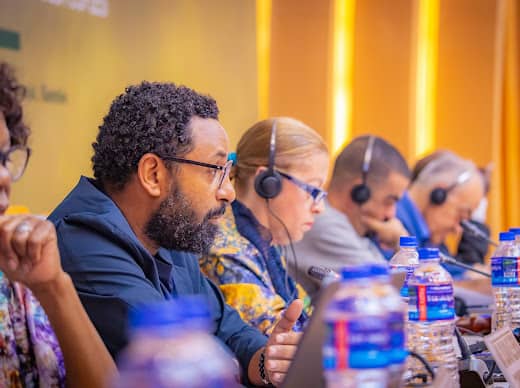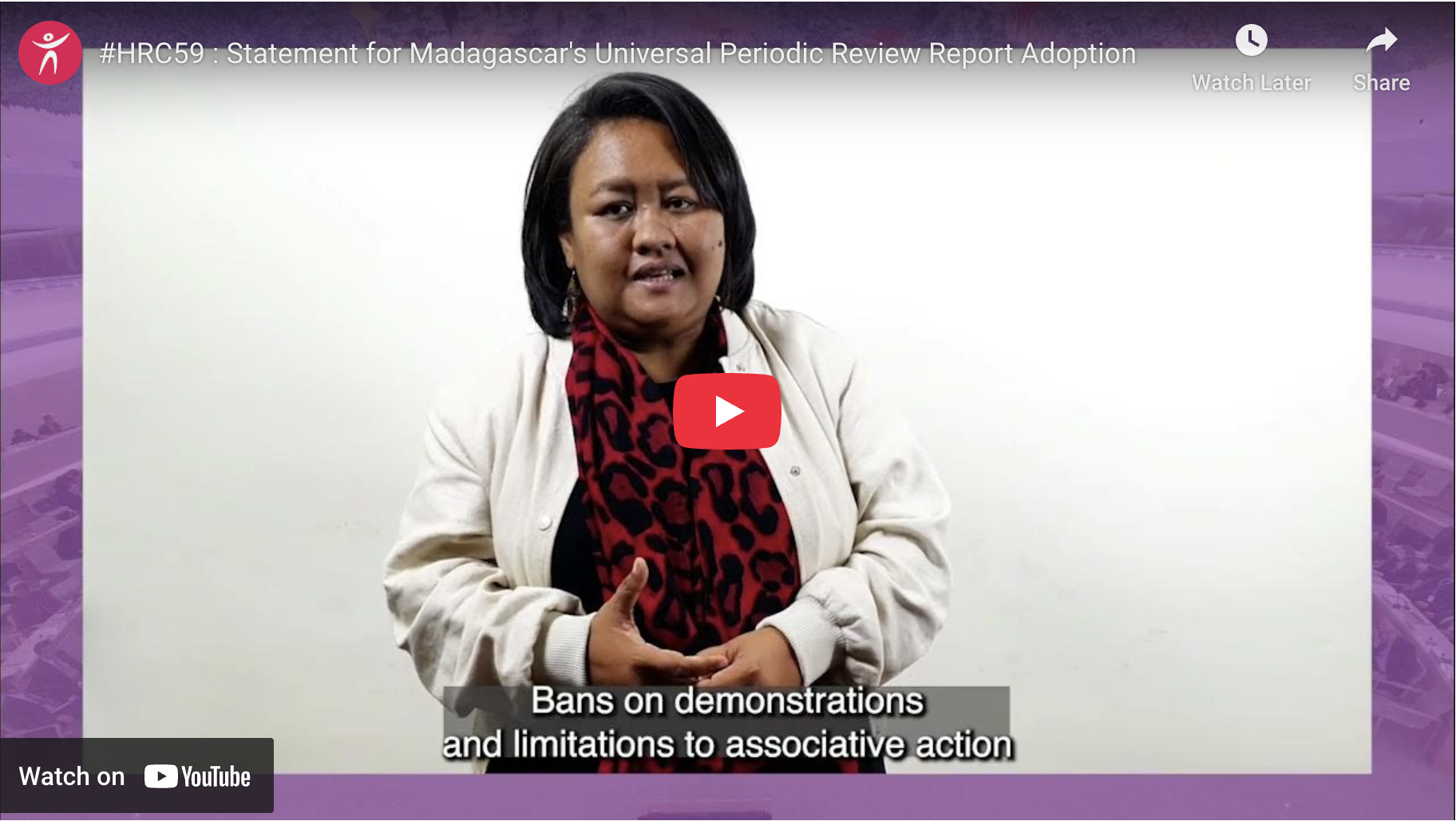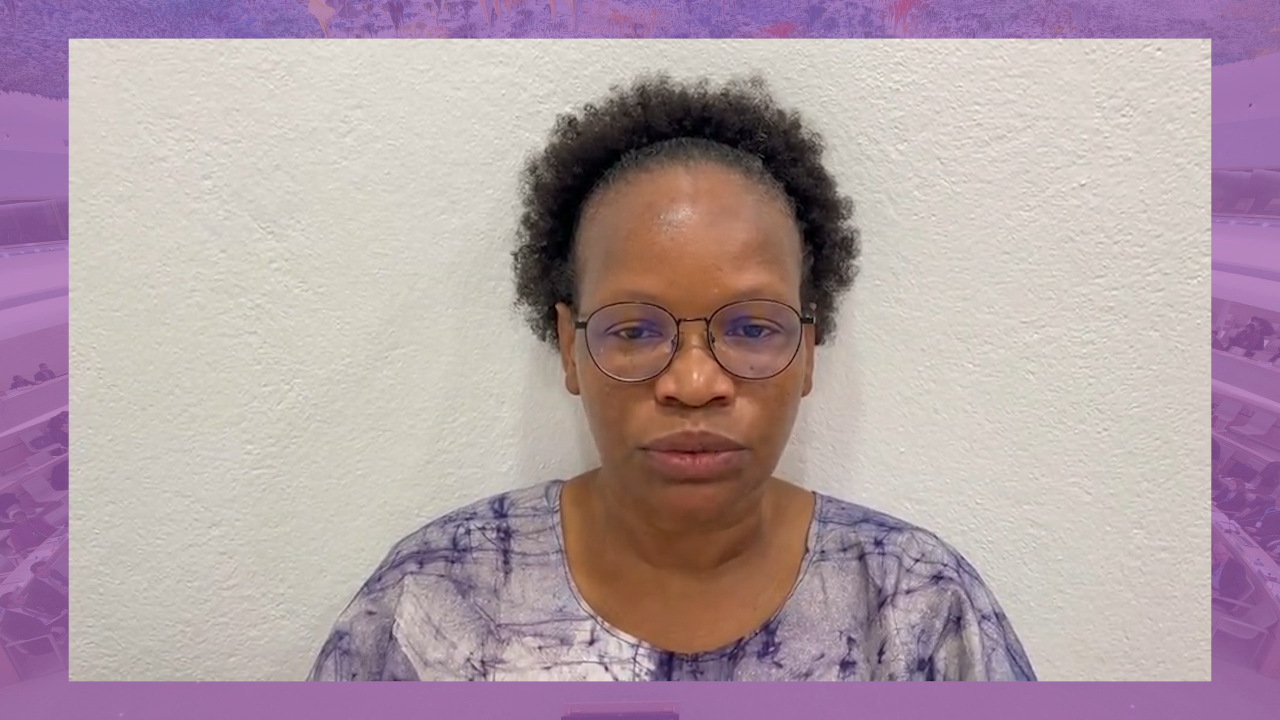During its review, the Zambian delegation highlighted the advancements made towards promoting and protecting human rights in the country. In particular, the delegation mentioned the measures taken to end all forms of child labour, guarantee the right to education, and eliminate gender disparities. To tackle the issue of gender-based violence and criminalise all types of violence against women, Zambia had introduced the Gender Equity Bill in 2015. Also, the delegation mentioned that Zambia had adhered to the African Court of Human and Peoples’ Rights.
Commissioner Ourveena Geereesha Topsy-Sonoo, country rapporteur of Zambia and Special Rapporteur on Freedom of Expression and Access to Information, asked the government of Zambia if it were considering ratifying various international and regional legal instruments such as the Protocol on the statute of the African Court of Justice and Human Rights and the Optional Protocol to the UN Convention against Torture. In addition, she asked if Zambia had any laws which focus on the rights to freedom of expression and access to information and if the existing laws considered the principle of justifiable limitations.
“In February 2022, the [Supreme] Court of [Zambia] ruled that the closure of Zambia’s most important independent newspaper imposed in June 2015 was illegal. The delegation is invited to elaborate on this recent development,” said Commissioner Topy-Sonoo.
The Special Rapporteur on Human Rights Defenders and Focal Point on Reprisals in Africa, Rémy Ngoy Lumbu, underlined that in recent years the freedom of assembly and association had been seriously curtailed while implementing the public order act. Human rights defenders play a crucial role in promoting and protecting human rights and are the real agents of development.
“According to some reports, many human rights defenders critical of the government have been subjected to harassment in the context of the 2021 elections. Could you provide further information on these allegations?” asked the Special Rapporteur.
Moreover, Commissioner Ngoy Lumbu encouraged Zambia to consider the Freedom of Association and Assembly guidelines adopted by the African Commission when drafting new laws. He also asked if the police’s inability to police political events adequately was a reasonable justification under the public order act 1955 to deny the right to assembly in Zambia.
“Are there any specific protection measures to prevent violations against human rights defenders in the country, and does the government of Zambia plan to adopt a specific law on the protection of human rights defenders?” asked Commissioner Ngoy Lumbu to the Zambian government.
The Zambian delegation stated that they intended to take measures to ratify the regional and international legal instruments.
“During the 12 August 2021 elections, the State party experienced an internet shutdown that adversely affected all social media platforms. This shutdown fundamentally infringed on the citizens’ right to accurate information. One of the human rights and the rule of law defenders in Zambia, namely Chapter One Foundation, expressed concerns about the State shutdown and sought the Court’s intervention through judicial review proceedings against Zambia Information and Communication authority sector, challenging the internet shutdown and obtaining a court order to have the internet in the country restored. Chapter One Foundation challenge was an account that the decision to shut down the internet was not supported by any law,” shared the Zambian delegation.
Download as PDF




